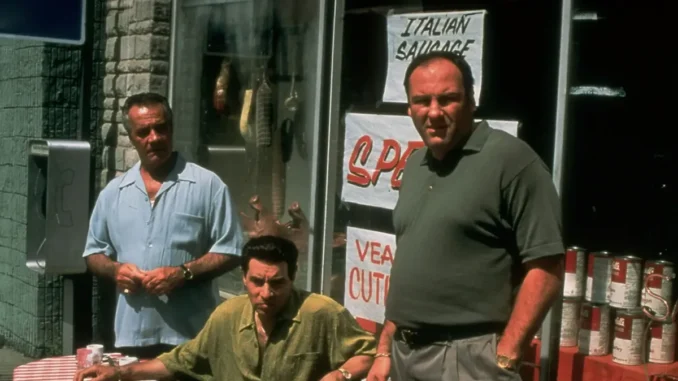
Even years after the final episode aired, Tony Soprano remains a cultural touchstone, a character that continues to spark conversations and inspire new generations of viewers. From his complicated relationships to his existential crises, Tony’s journey is far more than just a mobster’s tale—it’s a deep dive into the human experience. Let’s explore the elements that have solidified Tony Soprano’s legacy and why we still can’t get enough of him.
The Depth of Tony’s Character: More Than Just a Mob Boss
One of the key reasons we continue to love Tony Soprano is the incredible complexity of his character. He’s not just a mob boss; he’s a multi-dimensional figure with relatable struggles, emotional depth, and moral ambiguity.
The Relatable Anti-Hero
Tony embodies the anti-hero archetype, a character who isn’t purely good or evil. He deals with anxiety, depression, and family issues, making him feel like a flawed human rather than just a villain. Audiences resonate with his struggles, as many people grapple with their own demons.
A Family Man in a Crime World
At the core of Tony’s character is his family life. He loves his wife, Carmela, and his children, Meadow and A.J., yet he often fails them in significant ways. This duality makes him relatable; we can see elements of our own family dynamics in Tony’s interactions. His attempts to be a good father while balancing the demands of mob life echo the challenges many face in real life.
The Symbol of American Identity
Tony’s character also serves as a lens through which we can examine the complexities of American identity. He’s a product of his environment—a first-generation Italian-American trying to navigate his way through the American Dream. This connection to broader themes of immigration, ambition, and the quest for identity makes him a compelling figure in contemporary discussions about what it means to be American.
The Influence of The Sopranos on Television
The Sopranos is often credited with changing the landscape of television storytelling. It broke the mold for how characters, especially anti-heroes, could be portrayed on screen.
Pioneering the Anti-Hero Trend
Tony paved the way for other complex characters in television. Shows like Breaking Bad, Mad Men, and Better Call Saul feature protagonists who, like Tony, are morally ambiguous. They force us to question our loyalties and what we deem acceptable behavior. This trend has reshaped how stories are told, moving away from purely heroic characters to more nuanced portrayals.
Challenging Narrative Structures
The Sopranos also challenged traditional narrative structures. It often left viewers hanging with unresolved plot lines and ambiguous endings. This storytelling style has influenced countless series, encouraging a more thoughtful, layered approach to plot development.
Conversations About Mental Health
Another groundbreaking aspect of The Sopranos is its candid exploration of mental health. Tony’s therapy sessions with Dr. Melfi opened up discussions about emotional well-being, something rarely addressed in television at the time. This portrayal normalized conversations around mental health, inspiring viewers to confront their own issues and seek help.
Cultural Impact: Tony as a Symbol
Tony Soprano transcended the screen; he became a cultural icon representing the complexities of modern masculinity and the struggles of everyday life.
The Modern Masculinity Debate
Tony’s character sparked discussions about masculinity, particularly in how he navigates vulnerability and aggression. He embodies the tension between traditional masculine traits—strength, stoicism, dominance—and emotional expression, showcasing that men can be both tough and sensitive.
A Lens for Social Issues
Through Tony’s storylines, The Sopranos tackled a myriad of social issues: infidelity, addiction, violence, and the moral decay of society. These themes resonate today, making the show feel timely even years after it concluded. Tony’s struggles mirror the complexities many people face in contemporary society.
Iconic Quotes and Moments
Who can forget some of the show’s most memorable lines? Phrases like “It’s a mobbed-up world” or “You’re not a killer, you’re a lover” encapsulate Tony’s worldview and the show’s essence. These quotes have seeped into pop culture, and they continue to be referenced in discussions about morality and identity.
The Enduring Appeal of Tony Soprano
So, why do we still love Tony Soprano? It boils down to his humanity. Despite being a criminal, he embodies qualities we admire—loyalty, love for family, and the struggle for personal redemption.
The Complexity of Choice
Tony often finds himself at a crossroads, forced to make choices that define his character. We empathize with his dilemmas and root for his growth, even when he makes questionable decisions. This complexity invites us to reflect on our choices and the factors that influence them.
A Reflection of Ourselves
Tony’s story encourages introspection. He forces us to confront our own moral ambiguities and question our values. In a world where gray areas often dominate, Tony’s character serves as a mirror, reflecting our struggles, flaws, and aspirations.
The Nostalgia Factor
Finally, there’s the nostalgia element. For many viewers, The Sopranos represents a turning point in television history. Revisiting Tony’s journey feels like reconnecting with an old friend. We cherish the moments spent in his world, even as we critique his actions.
Conclusion: The Lasting Legacy of Tony Soprano
Tony Soprano isn’t just a character from a television show; he’s a cultural phenomenon. His complexities, struggles, and contradictions resonate with audiences on a profound level. Through his journey, The Sopranos has explored the depths of the human experience, redefining what it means to be an anti-hero and challenging societal norms.
As we continue to analyze and discuss his legacy, one thing is clear: Tony Soprano will forever hold a special place in our hearts and in the annals of television history.
